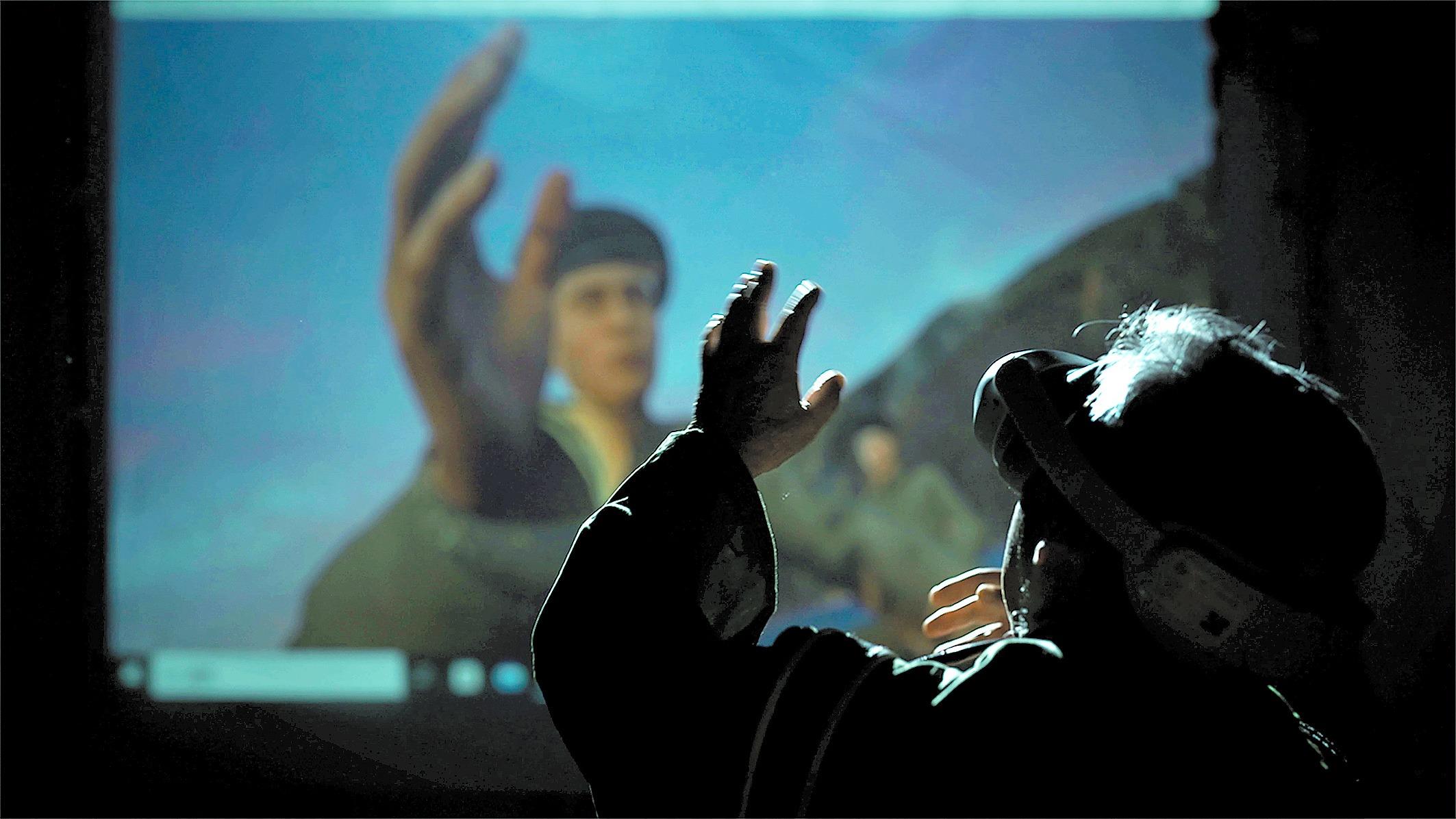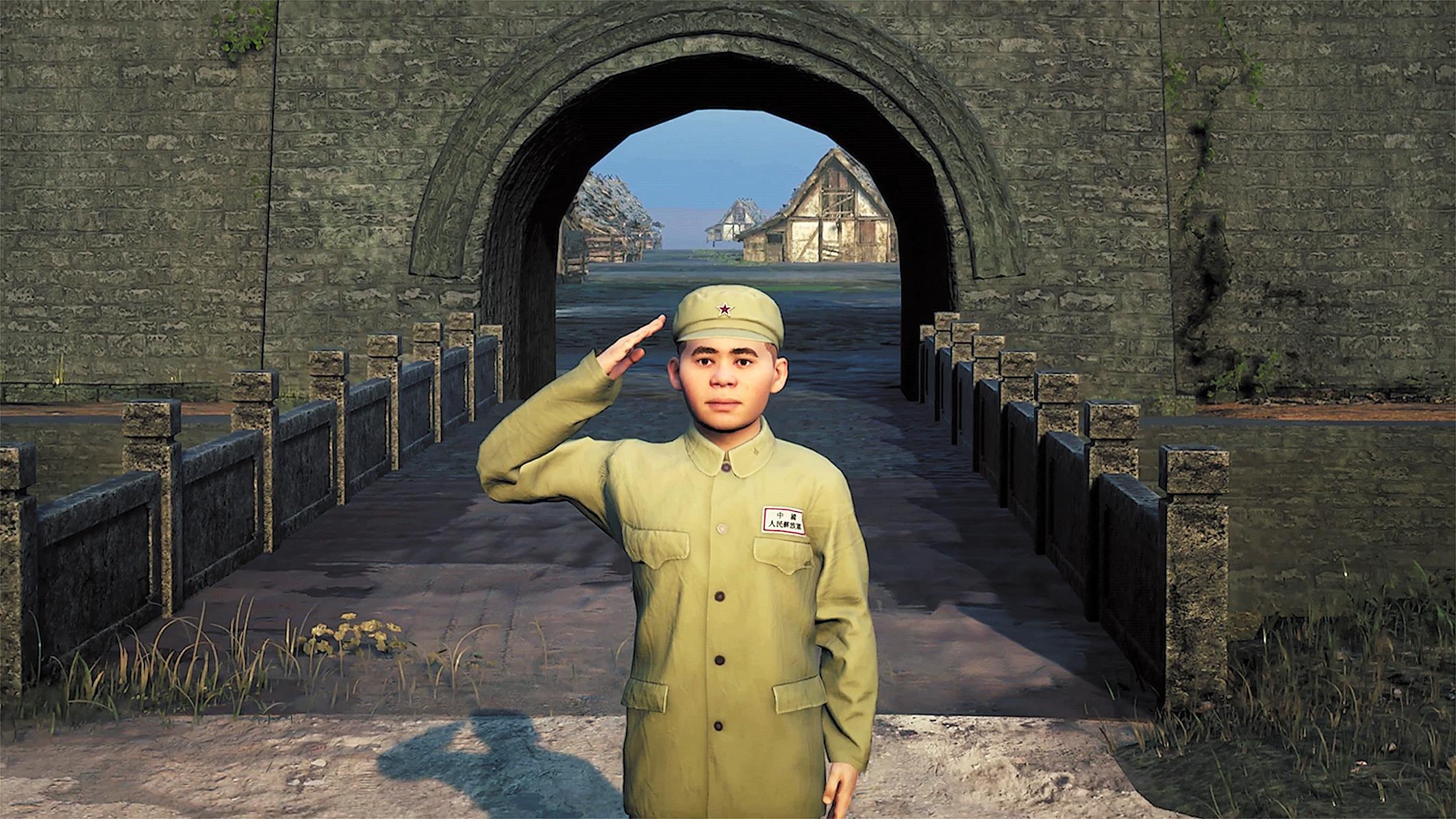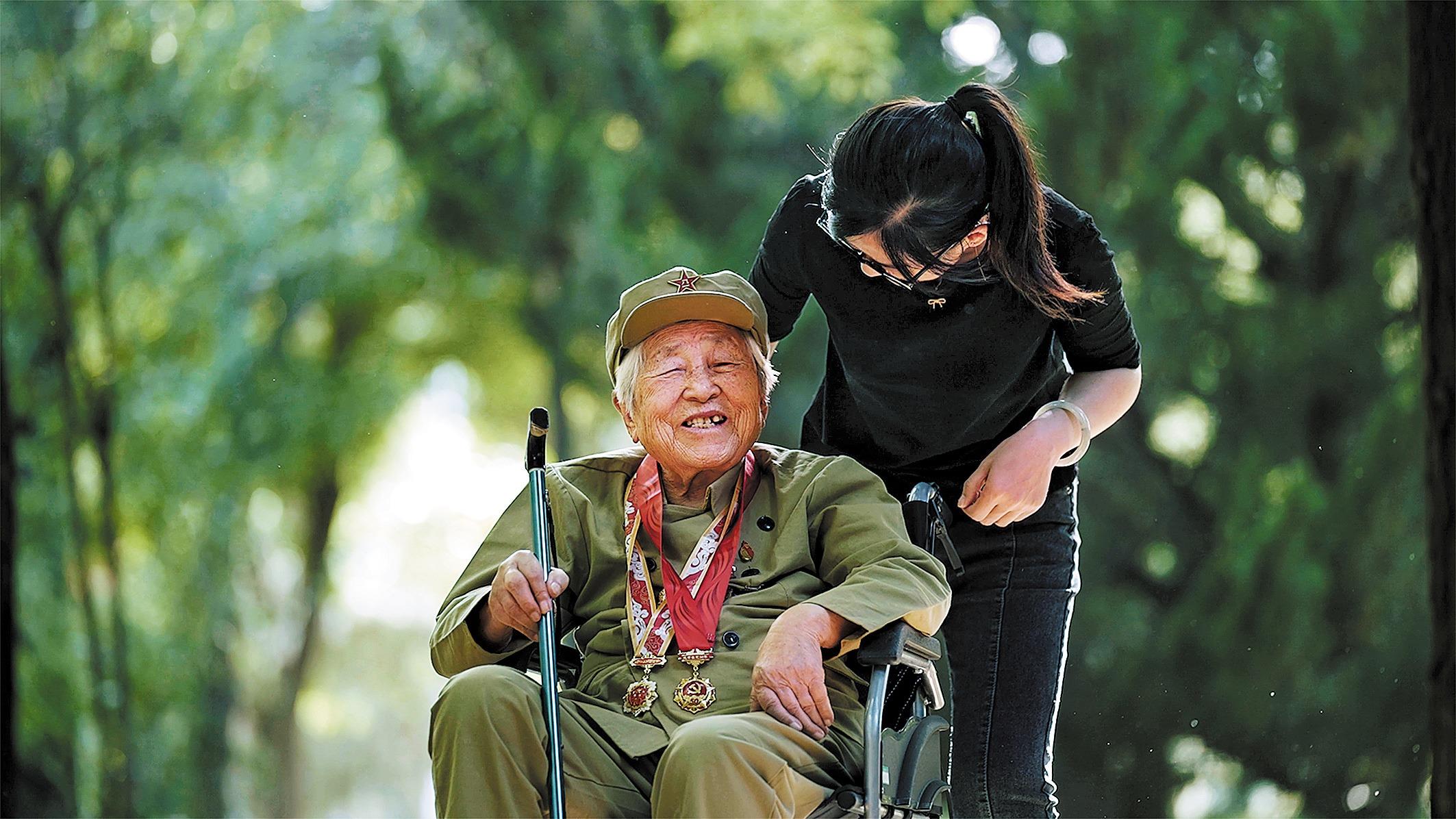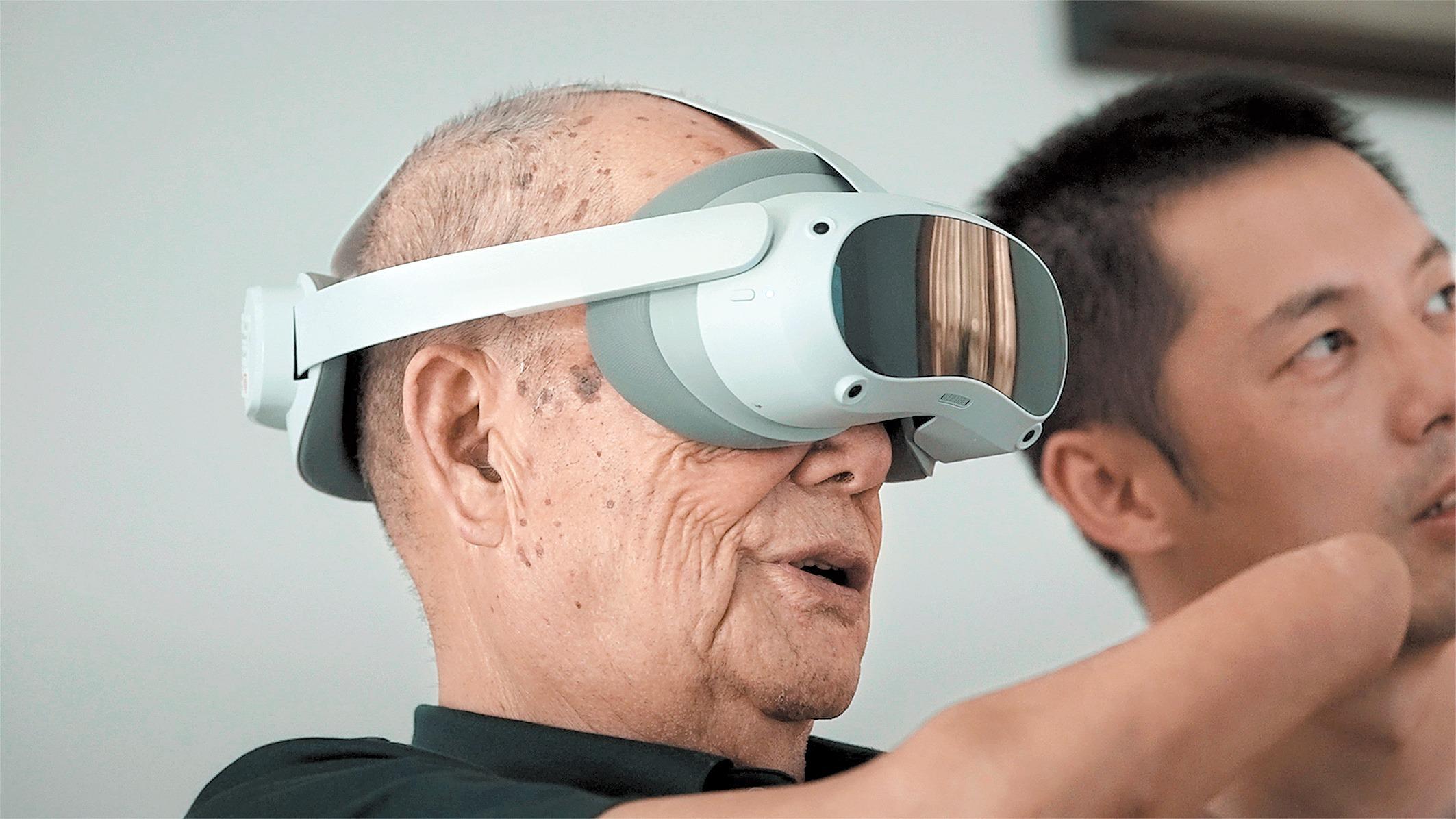 Luo Feilin, a member of the Chinese People's Volunteers during the War to Resist US Aggression and Aid Korea (1950-53), uses VR equipment to meet his comrades in the virtual realm. (PHOTO PROVIDED TO CHINA DAILY)
Luo Feilin, a member of the Chinese People's Volunteers during the War to Resist US Aggression and Aid Korea (1950-53), uses VR equipment to meet his comrades in the virtual realm. (PHOTO PROVIDED TO CHINA DAILY)
Public attention will often gravitate toward the collective stories of surviving veterans on the anniversary marking the end of the War to Resist US Aggression and Aid Korea (1950-53), which fell on July 27.
Living members of the Chinese People's Volunteers during the war might be invited to recount the tales of the tumultuous era as witnesses to a chapter of history that most have only read about.
Yet, within the narratives that unfold, CPV veterans are often portrayed as a unified entity, emblematic of a generation's sacrifice and courage.
However, this year, amid this collective spotlight, a new documentary, Searching Beyond Time and Space, endeavors to view history from a different perspective — to go beyond the collective and uncover the thoughts of individual soldiers, and find out if they carry with them any lingering regrets or unfulfilled aspirations in the twilight of their lives.
Moreover, the production unit, by using virtual reality technology, offers the veterans an opportunity to revisit moments in the past and address those regrets in the virtual realm.
 The image of Wei Jiamin, a CPV volunteer who has passed away, is reproduced through VR. (PHOTO PROVIDED TO CHINA DAILY)
The image of Wei Jiamin, a CPV volunteer who has passed away, is reproduced through VR. (PHOTO PROVIDED TO CHINA DAILY)
For instance, one episode follows the story of Tian Wei, an 90-year-old CPV veteran who lives in a village in Zhuzhou, Hunan province.
Following the conclusion of the war, Tian returned to China in 1954.Upon his return, he learned that his comrade-in-arms Wei Jiamin, whom he had saved on the battlefield, had sent his family money to help him care for his parents.
Tian has long held a heartfelt desire to express his gratitude to his dear former comrade, whom he has not heard from for many years.
To grant Tian's wish, Deng Junjie, his 27-year-old grandson, embarked on a journey that took him through the Guangxi Zhuang autonomous region, Guangdong and Hubei provinces to find Wei.
Along the way, Deng engaged in heartfelt conversations with other veterans and finally reached Wei's family.
But he discovered that Wei had passed away.
Using a portrait, the documentary's production team managed to re-create Wei's visage. Then a "time-transcending meeting" between Tian and Wei was realized in the virtual world as Tian donned VR equipment.
 Gao Ruifang, a CPV volunteer, with her granddaughter Sun Ning. (PHOTO PROVIDED TO CHINA DAILY)
Gao Ruifang, a CPV volunteer, with her granddaughter Sun Ning. (PHOTO PROVIDED TO CHINA DAILY)
Throughout the virtual scene design process, the directorial and technical teams, and the children of the veterans, meticulously crosschecked every detail, says Sun Lu, director of the six-episode series.
"We wanted to create a more authentic ambience, allowing the living veterans to experience a heightened sense of realism and immersion," says Sun.
After extensive phone calls and on-site research, the production unit traveled across multiple regions and provinces, including Hunan, Hubei, Guangdong, Guangxi, Heilongjiang, Liaoning and Shandong. Ultimately, the stories of 18 veterans were documented.
"During the research phase, we realized that these CPV veterans, no longer in their youth and sometimes even struggling with mobility, have a strong desire for someone to listen to their stories," says Sun.
"I hope that each viewer of the documentary can keep these people in their memories."
Each story in the documentary unfolds from the perspective of the younger descendants of the veterans. This arrangement, according to the director, is deliberate.
"The war that took place 70 years ago seems distant from us. We know the stories of such heroes as Huang Jiguang and Qiu Shaoyun from textbooks, and through movies, we have visualized the war to some extent, and learned about the greatness of CPV," says Sun.
 Zhou Quandi, another CPV volunteer, uses a VR device. (PHOTO PROVIDED TO CHINA DAILY)
Zhou Quandi, another CPV volunteer, uses a VR device. (PHOTO PROVIDED TO CHINA DAILY)
Yet, on a personal level, they could very well be someone's grandparents — just unassuming elderly individuals. Regrettably, when it concerns the stories of our own grandparents, they are often overlooked by young people, he adds.
That's why he wanted to direct such a documentary to encourage today's younger generation to get closer to the inner world of their grandparents and older ancestors.
"I'm deeply touched," Hong Yi, a 28-year-old viewer, says.
"This documentary adds a sense of warmth to technology, zooming in from the familiar grand narrative of war to each vivid individual story. This film has the power to weave dreams, where, within this dream, the past, though unchangeable, remains open for people to revisit, reconcile with, and reimagine."


